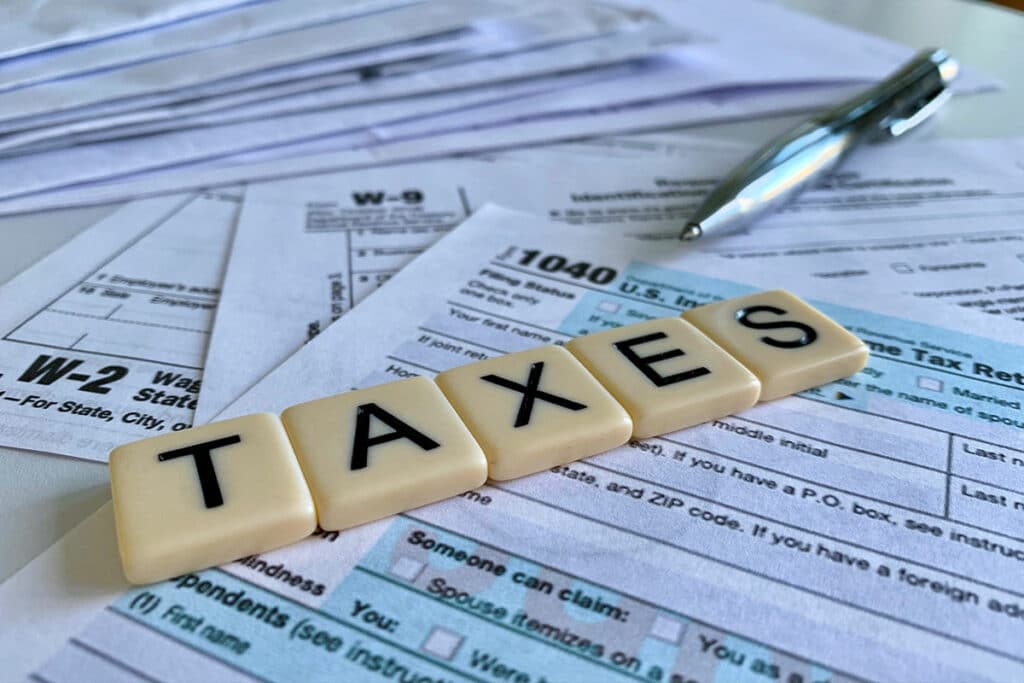Completing a tax return feels complicated and convoluted for many Americans. This is likely why almost a third of people wait until the last few days before the tax deadline to complete their return. People tend to avoid things they don’t like or understand, which is why forgetting about your taxes until they are due is so commonplace.
A better understanding of the tax process and how it could impact you may lead to less avoidance. It could also actually help you to save money or, at the least, not be hit with a surprise tax bill. Here are a few things you can do now so that when January comes around, you may be first in line to have your accountant finalize your return.
Start By Reviewing Your Last Tax Return
The best way to learn about something is to do a review. Many people pick up their taxes from their tax professional and file them away, never to be looked at again (unless they get an audit.) Taking a few minutes to review them in detail may help you to close the gap in understanding your tax situation better. Take a look at the three main components of your return and note anything that may differ this year.
- Income: Review your income and take note of any changes that might occur this year, like a bonus at work or a side gig you are taking on.
- Deductions: Did you have any deductions outside of the standard deduction? If not, are there things happening in your life this year that may allow you to itemize to reduce your tax liability?
- Credits: Did you get any credits on your return for this year? Will they still apply for next year? If not, your tax liability may change, and this could cause you to owe more money.
Consider Adjustments to Your Retirement Plan
Contributing to your retirement plan cannot only give you a more stable future but can also help you with your tax planning now. The first step is to check with your employer and determine the details of your retirement plan. Do they provide a match to your contribution? If so, what percentage do they match up to? Are there other specific details that are important for your planning purposes? Once you have the facts, determine how much you can contribute to it. The maximum contributions change each year; for the 2023 filing year, you could contribute as much as $22,500 to your tax-deferred 401(k) or 403(b) plan. While not everyone can take such a large portion of their income, any amount you contribute will help you both now and in the future. These are some things to research and consider about your retirement plan.
- 401(k), 403(b), and IRA contributions decrease your tax liability today by lowering your taxable income.
- The interest or growth you get on this money is not taxable, unlike a traditional savings account.
Check Your Current Withholdings
Things change in life. You get married/divorced, have children, care for your parents, and many other alterations along the way. Sometimes, life is so busy that you forget to adjust the withholdings from your paycheck. Adjustments like the addition of a child could allow you to keep more money in your paycheck every month while seeing less of a return when you file your taxes. However, if you are newly single or your adult child has flown the coop, not making those adjustments could have you owing the IRS since you will not have the same deductions as years previous. When you have significant life changes, check with your employer to ensure your withholdings match up with your status.
Research Tax Credits Before Making Major Purchases
Tax Credits are, just as they read, a credit to your tax due. Some credits are refundable, meaning you can receive a refund if they exceed your taxes due. Others are not refundable but could decrease the tax you owe all the way down to zero. There are so many unique tax credits available that it is worthwhile to do cursory research before making a major purchase. There are tax credits for choosing electric if you need a new car. These credits could decrease your tax liability and also keep your gas bill down. Are you considering adding solar power to your home to help the environment and lower your monthly electric bill? You may qualify for residential energy tax credit to help bring that project to life. Have you dreamed of starting your own business or farm? Check with your accountant first to determine if any federal, state, or local credits are available for you to get going.
It is easy to procrastinate, but your stress level will pay for all the delay when the due date is here. Take some time now to plan for next year’s tax return to maximize your money and decrease the stress in your life. The expert team at Hayes Accounting is available to help you kick off the planning process.
Contact us today to better understand next year’s tax return.






